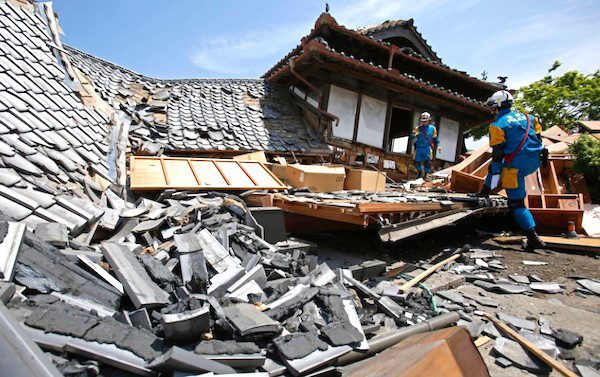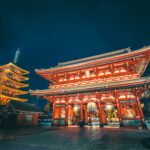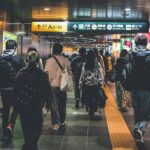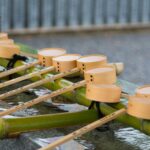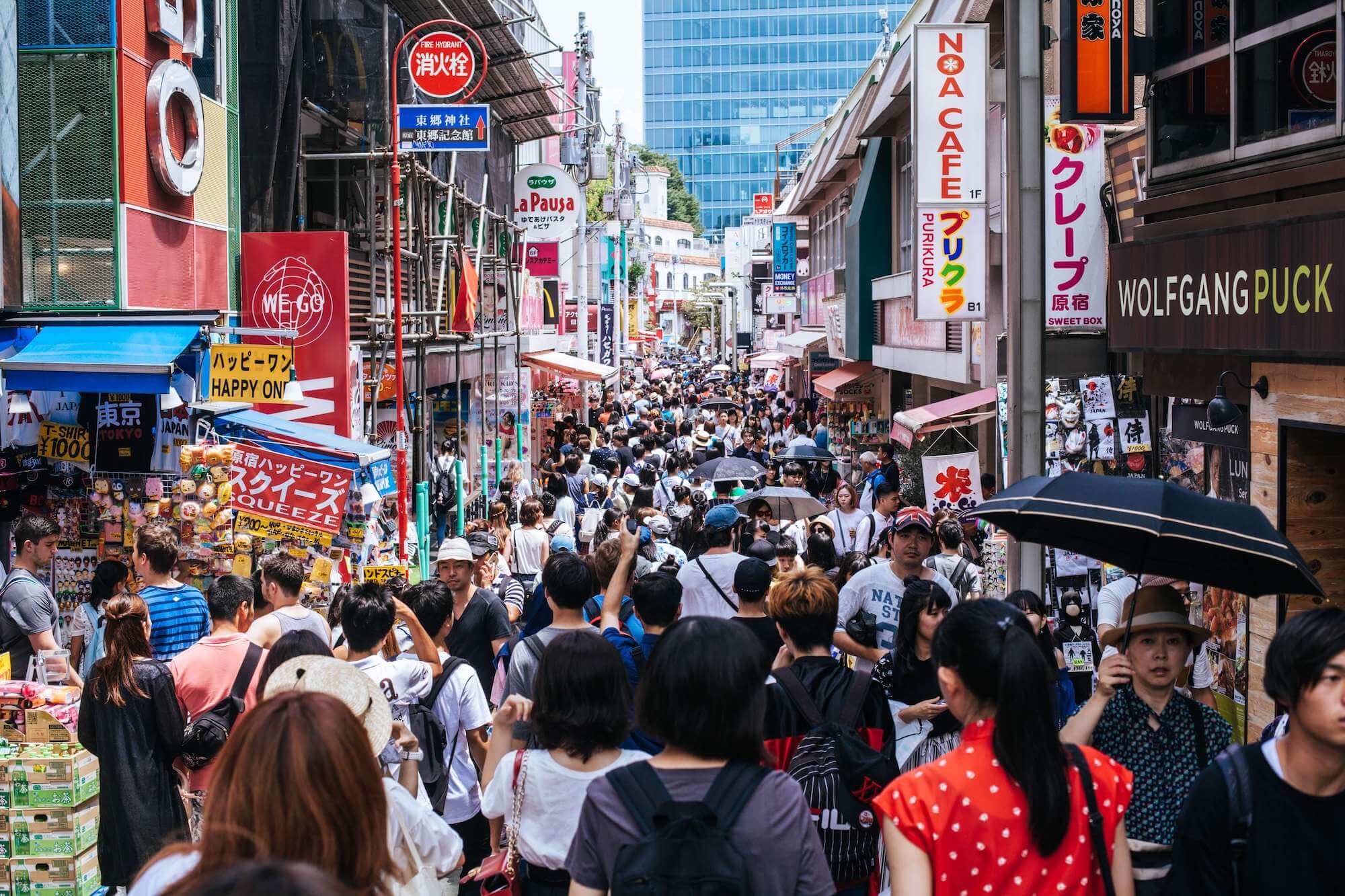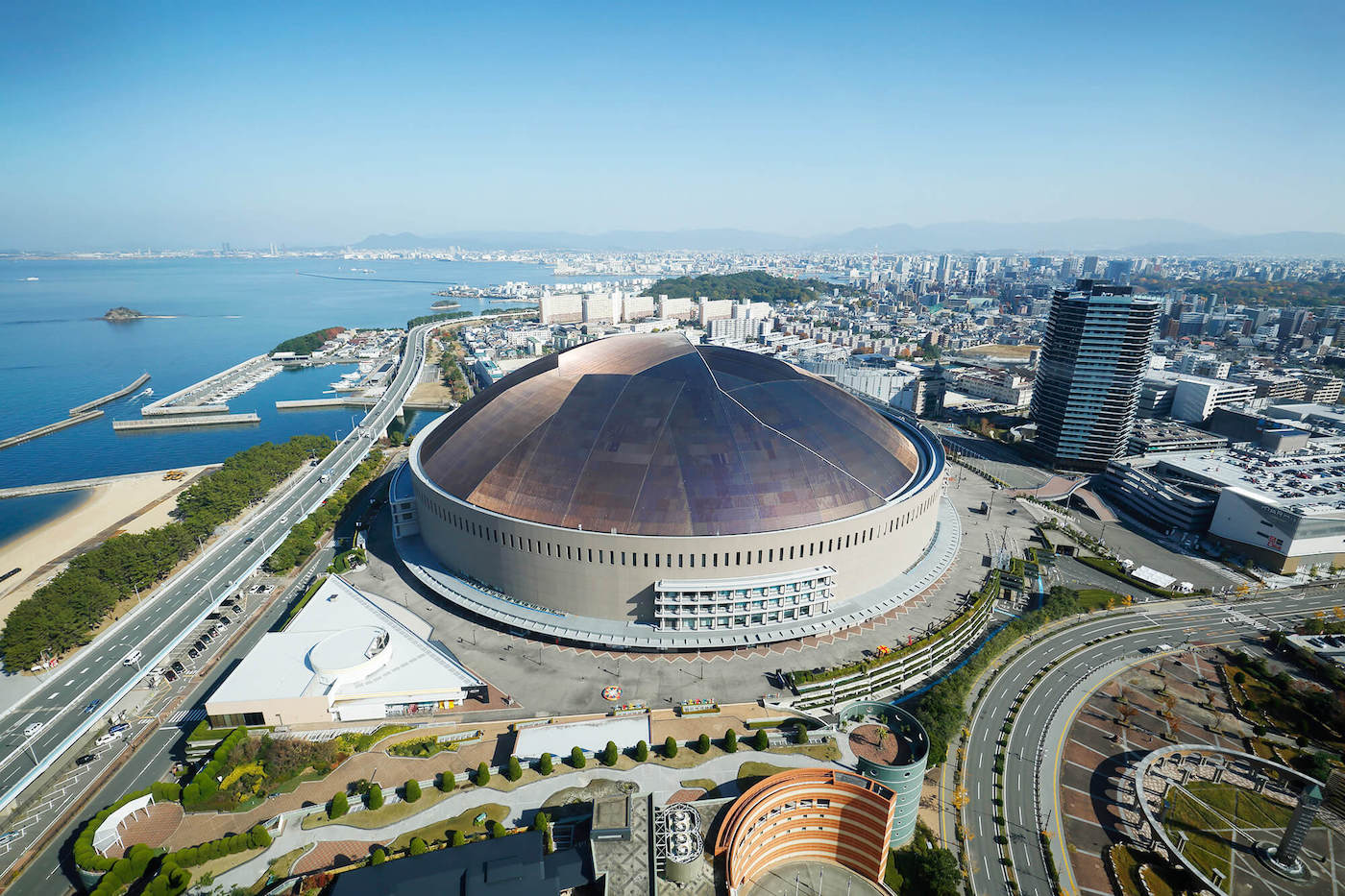Earthquake Japan – For those currently living and working in Japan, earthquakes are commonplace happenings that are easily ignored when they happen throughout the day. This is mainly due to the fact that Japan experiences minor to moderate tremors on nearly a daily basis. The small island country experiences around 1500 earthquakes every year, so worrying about every single one of them would take considerable effort and energy.
That being said, it’s important to be prepared for when a much larger earthquake may strike the land of the rising sun. Whether you’re living in Japan or just passing through, everyone should be aware of what to do in case of an earthquake in Japan.
Table of Contents
If You’re Indoors

Credits: 筑波大学附属図書館
Earthquakes in Japan can happen at any moment. If you happen to be indoors when a major quake strikes, follow these steps as best you can:
- Stay indoors
- Protect your head and body
- Stay away from things that can fall on you
- Get as low to the ground as you can
If you find yourself inside your home, a restaurant, department store, or other building, your first priority is to stay indoors and protect yourself. Find a sturdy doorway, pillar, or large piece of furniture that you can position yourself under. Steer clear of bookshelves, light fixtures, windows, display shelves, and other heavy, tall, or fragile objects that can fall and hurt you. Stay low to the ground to avoid falling and hurting yourself during the tremors.
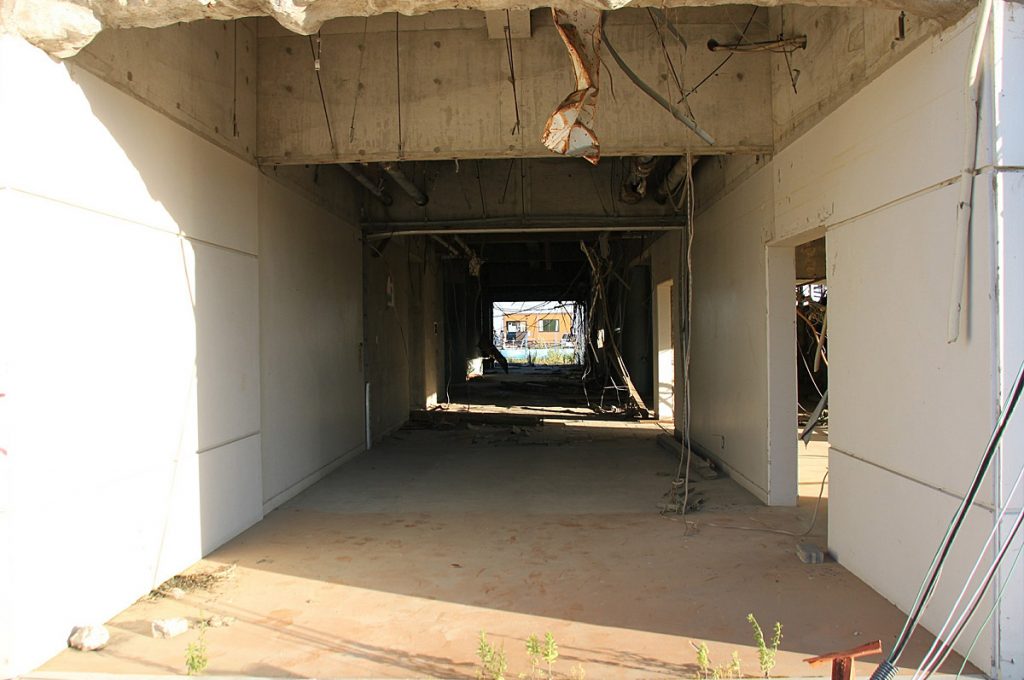
Being inside a building in Japan is actually one of the safest places to be during an earthquake, as most buildings are made to withstand the force of earthquakes out of necessity. The most important piece of information is to make sure that you protect your head as best you can, even if it means putting your hands or a bag over it. The majority of injuries sustained during earthquakes happens when people attempt to leave the building or move to a different room, so be sure to stay put!
If You’re Outdoors

Credits: Yuichiro Haga
If you find yourself out in the open in a rural, urban, or suburban area, there are a few steps you can take to protect yourself:
- Move to an open space
- If there’s no open space, find a new-looking building to stay inside (NOT next to)
- If you’re in a station, move to a pillar and avoid the platform
- Crouch down and wait for the shaking to stop
When outside, your biggest threats are nearby buildings, trees, and utility lines. Moving to an open space minimizes your chances of being hit with falling debris. If you’re surrounded on all sides by buildings, use one that looks relatively new to seek shelter in. As said above, Japanese buildings are made to withstand earthquakes, and thus can offer substantial protection during one.

Credits: Yuichiro Haga
Overall, the same basic advice for what you should do indoors still applies when you’re outside. Find a way to protect your head and body, stay away from things that can fall on you and injure you, and make sure to stay as low to the ground as possible until the shaking stops. Your biggest danger lies in being too close to buildings and other tall, heavy objects during an earthquake in Japan.
If You’re in a Moving Vehicle

Credits: Daisuke TSUDA
During an earthquake, you might find yourself in a bus, on a train, or driving a vehicle. There are a few things you need to make sure you do when traveling during an earthquake:
- If driving, carefully slow down until you can safely pull over and away from trees, power lines, and bridges
- If you’re in a car or bus, keep your seatbelt on until the earthquake is over
- Check the radio or a smartphone for announcements
- Avoid roads that might be damaged by the earthquake
- If you’re in a train, the cars will automatically stop; hold on to avoid crashing into other passengers
You might not notice an earthquake while driving at first, but if you’re aware of your surroundings – like stoplights and street signs – and see them swaying despite there being no wind or unusual movement, chances are that there is an earthquake in progress.
During a severe earthquake you may find it difficult to drive in a straight line, so reducing your speed slowly is the safest way to avoid an accident. The best thing you can do is stay in your vehicle during an earthquake, as it will offer a great deal of protection.

Credits: Hikosaemon
If you’re using any public transportation, the driver or conductor will instruct passengers on what they should do. These instructions will more than likely be in Japanese; if your language skills aren’t up to date with emergency situation vocabulary, you should watch what others do and follow their lead. If you’re in a bus, the driver will likely pull over and wait it out. Trains will stop, and people will get as low as they can inside the cars until the earthquake is over.
After the Quake

Credits: CECAR
After the earthquake has stopped, you should follow several steps to ensure your safety:
- When the shaking is over, leave the building (using stairs over elevators)
- Find higher ground
- Follow the locals
- Head to an evacuation area if necessary
If you’re inside a building during the earthquake, leave as soon as the shaking has stopped. You should have an emergency pack ready at all times to take with you that’s filled with supplies you might need. These can be purchased at nearly every home appliance store, and are useful for those staying for long periods of time in Japan. Once outside, ensure you’re on the high ground of the area. Earthquakes can be followed by tsunamis, so it’s important to steer clear of dangerous areas near the coast or large bodies of water.
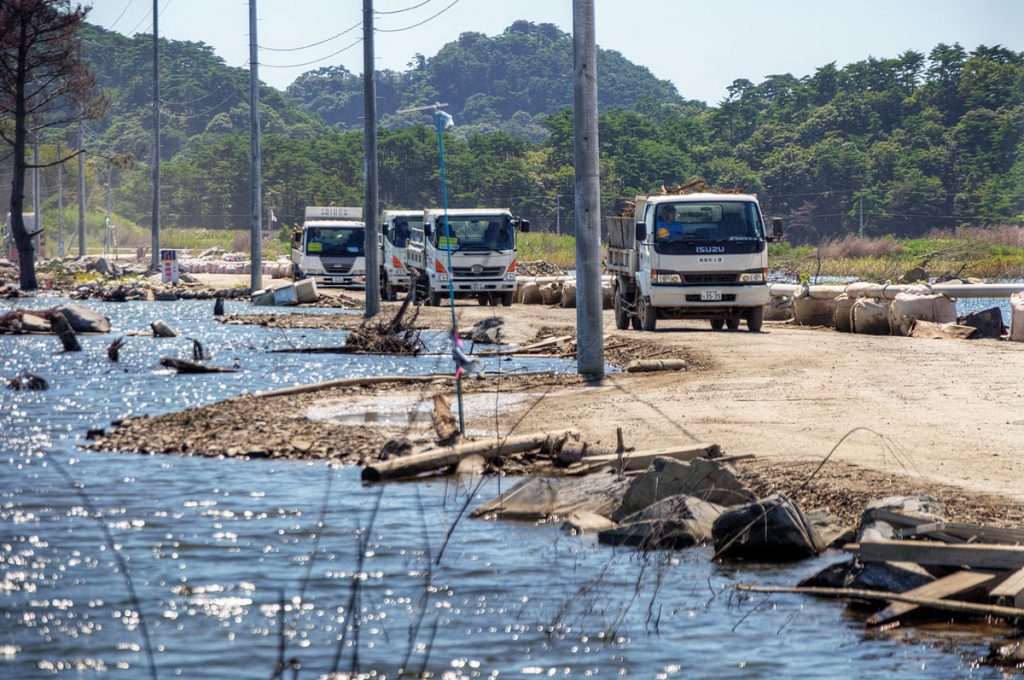
Credits: Yuya Sekiguchi
Even if you speak Japanese fluently and understand the city-wide announcements, it’s a good idea to follow the locals; go where they go and do what they do. Many cities and prefectures have evacuation drills that are practiced often, meaning that those that live in the area will have a good idea about what should be done in case of an earthquake. They might even head to an evacuation area if the earthquake is serious enough, which means it’ll be the safest place for you to be as well.
If you don’t feel well or ill, it’s good to know what medicine to take. Read about medication in Japan here.
Important Tips to Remember
The most important thing to remember when you experience a major earthquake in Japan is that you need to protect your head and body first and foremost. No matter where you find yourself during an earthquake, you should always be on the lookout for a spot to get low and stay safe. When in doubt, follow the lead of the locals. This is especially important if you can’t communicate in Japanese.
Our final piece of advice is to stay connected. Make sure you reach out however you can to alert your friends, family, school, employer, and any other important group or organization that you are safe, or that you need assistance. You should research how to contact your embassy before a natural disaster strikes. We hope these tips can help both tourists and expats when it comes to surviving major earthquakes in Japan, and urge everyone to stay safe and stay strong!

You can share this infographic with your friends, on your blog and social media, just don’t forget to credit Your Japan.
Earthquake Japan – Do you have other tips what to do during an earthquake, tell us on our Facebook group. For more info about Japan, subscribe to our Facebook, Instagram, and Pinterest!
Till next time.

